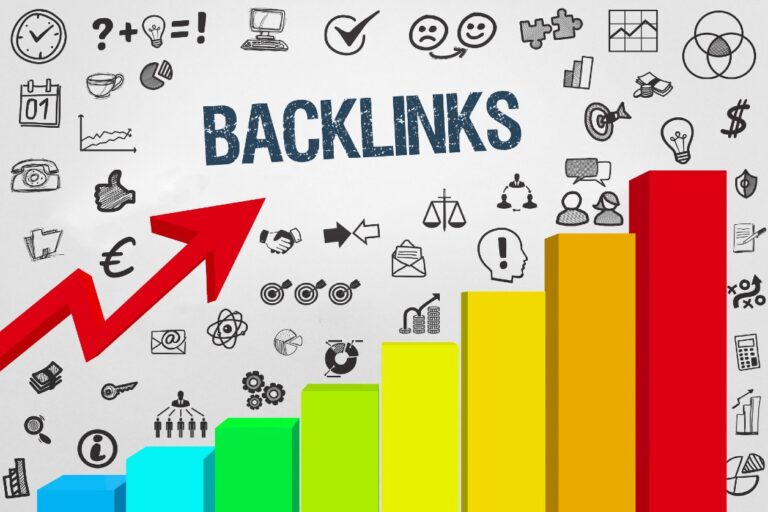What are backlinks and are they important?
When talking with clients about increasing their Search Engine Optimization, one of the important things we recommend is increasing the number of backlinks, or inbound links, associated with their site. But why? Are backlinks really that important?
The answer is yes. In order to rank well in Google results, you need both good “on-page” and “off-page” factors. The “on-page” factors would be things such as title tags, meta descriptions, and alt attributes. Part of the “off-page” factors are backlinks. The quality, amount, and relevance of those links affect your own site rating.
What are backlinks?
Backlinks are also known as inbound links, incoming links or one-way links are links from one website to another website. Search engines like Google consider them “votes” for the website. Pages with many backlinks tend to have higher organic search engine rankings.
Why are backlinks important?
Backlinks are votes from other websites. Each of those votes tells search engines that this content is valuable, credible, and useful. The more votes the higher your site will rank. Backlinks were part of the original algorithm for Google known as “PageRank”. Even though Google changes its algorithms regularly, that is still a ranking signal that is part of Google ranking factors.
How do I get backlinks?
There are two ways to receive backlinks from another site. The first is through “Black Hat” links, which we do not recommend.
These are links coming from sites that have nothing to do with a specific product or service but are simply created for reciprocal link exchange. This used to be a popular way to boost your online presence, but recently Google has started punishing those websites that utilize this for search engine optimization. Read more about why Black Hat links do more harm than good to your website.
“White Hat” links come from quality sites that have some sort of relevance to the content on your own website. Look for sites that have higher page rank and authority. Web crawlers take this into account when indexing, which will result in higher engine rankings for your own website. In terms of SEO, this is exactly what we want to see.
What kind of backlinks should I look for?
Not all backlinks are the same. If you want to rank higher in search engines, look for quality backlinks. They need to come from Trusted sites with high domain authority. Would you rather have a backlink from Forbes or from a small mom-and-pop website?
The more authority a site has, the more authority it passes on to you. You should also consider this when linking out to other websites.
Are these links difficult to acquire? YES! But are they worth it? YES!
Are the backlinks related to your site? Google wants to make sure that the link makes sense to your content.
Is the link a dofollow link or do they have the “nofollow” tag? Search engines ignore any links that have a nofollow tag. They don’t count.
Best Practices for Backlinks in 2021
Create assets that people want to link to. These are called linkable assets. These can include videos, blog posts, a quiz, a survey, an infographic, etc. An especially good asset is a page or post with numbers or data from research that you have done. Another good asset is creating special guides for services or products that are original and not copied from someone else.
Another way to get a backlink is to join HARO. They email you 3 times a day with reporters looking for sources. If you check it regularly, you will find reporters looking for insight into your specific business. You respond to the reporter with your credentials, a quote, and some tips and when they complete their report you have a quality backlink.
How to disavow backlinks in 2021
If you have seen a recent traffic drop, you want to cover your bases and make sure your backlink portfolio is mostly good high authority websites or if you have any toxic backlinks or suspicious backlinks. If you find a lot of toxic or suspicious backlinks, you may want to create and upload a disavow file.
Which links do I disavow?
Use a spam score to analyze links. SEMRush is a great way to do this.
Many people use Excel or Google Sheets to create a list of disavowing links. A disavow file must be UTF-8 or 7-bit ASCII. The maximum file size is 2MB or 100,000 lines.
Now go to the Disavow tool in Google Search Console. Upload your disavow file. You should get a choice of either uploading the to disavow list or replace. If you choose to replace make sure you have a copy of the old one first.
Best Backlinking Tools
- Ahrefs – A Link building software suite for pros.
- SEMRush – This tool is one of my favorites. You can look at your competitor’s backlinks and reverse engineer them for your website.
- Moz Link Explorer – This site also helps you reverse engineer your competitor’s backlinks.
- Majestic SEO – A backlink analysis tool on a budget.
- Disavow.it – to create a disavow file in just a few seconds.
- JustReachOut – Pitch to reporters and journalists
- Link Prospector – it has hundreds of pre-made search strings. Just enter a few keywords that pertain to your website and it does the rest.
Backlinks help boost your website’s credibility and search engine optimization but remember it is not the number of backlinks, but the quality that matters to search engines.

Matthew is the President of Infront Webworks and is a New England native now calling Colorado Springs home. Matt attended The University of NH where he pursued a BS in Natural Resource Economics & Business Administration. Aside from Infront; Matthew has owned and managed two other online agencies based on the seacoast of New Hampshire and been a key player in multiple technology mergers & acquisitions. When he’s not bathing in technology, online marketing & business; he’s probably spending time with his wife and daughter, boating, skiing the trees, hiking or cooking..he is a foodie for sure!



